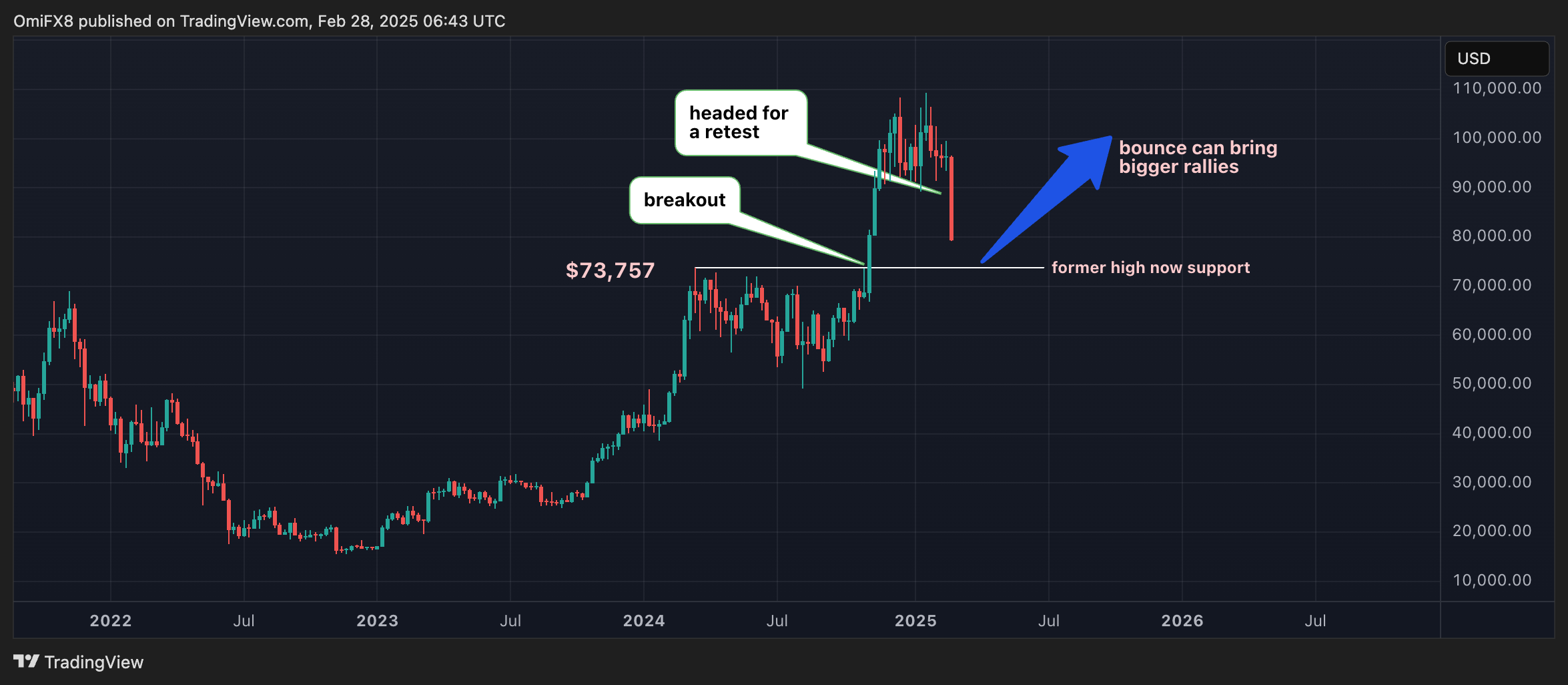Understanding the 'Breakout and Retest' Play in Bitcoin
The breakout and retest play is a fundamental concept in trading, rooted deeply in human behavior and market psychology. Just as you might double-check a locked door before leaving for vacation, financial markets often revisit key levels after breaking through them to confirm their strength.
Currently, Bitcoin (BTC) is experiencing a sell-off, which may represent a healthy retest of the former resistance-turned-support level of $73,835, breached back in November. This sell-off could be nearing its end, potentially setting the stage for a significant upward movement.

Market Behavior and Psychological Factors
Since the beginning of February 2025, BTC has dropped over 15%, testing the critical support level of $73,835. This level was significant as it marked the end of a prolonged consolidation period after pro-crypto Donald Trump's election victory led to a surge in Bitcoin prices.
Behavioral economics suggests that traders are generally risk-averse, often cashing in on profits quickly. This phenomenon is explained by prospect theory, which highlights that post-breakout rallies tend to lose momentum, prompting a retest of breakout points. Since December, many BTC holders have been taking profits around the $100K mark.
As Bitcoin approaches the $73,835 level again, more buyers may step in, leading to a potential bounce and, ultimately, a larger rally. This pattern has been observed in previous years, notably in 2020 and 2023, where retests resulted in significant upward movements.

Historical Context and Future Implications
Traders need to be cautious, as a failed retest or a lack of a significant bounce can indicate a weakness that might lead to a full-blown downtrend. Historical examples from traditional markets often demonstrate that retests can lead to larger moves, such as the 10-year Japanese government bond yield, which revisited breakout levels before reaching multi-year highs.

The AUD/USD pair also showcased similar behavior, indicating potential deeper slides after a major support trendline breakdown.






Comments
Join Our Community
Sign up to share your thoughts, engage with others, and become part of our growing community.
No comments yet
Be the first to share your thoughts and start the conversation!